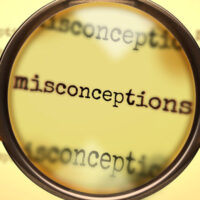Common Misconceptions About Your Estate After You Pass Away

When it comes to the law, particularly estate planning, there are many misconceptions that have formed over the years. Believing these myths when creating your estate plan may result in your loved ones not having the protection you intended for them after you pass away. Below, our St. Petersburg estate planning lawyer outlines the most common misconceptions about what will happen to your estate after you pass away, and the truth behind them.
Misconception #1: My Spouse Receives Everything if I Do Not Have a Will
Some people believe that if they do not have a will, their spouse will receive all of the property in the estate. This is true in some cases. Your spouse will receive your entire estate if you do not have any children, or if your children are from the same marriage. If you have children from a previous marriage or relationship, though, your spouse will only receive 50 percent of the estate’s assets. Your children from a previous relationship will receive the other 50 percent of your estate.
Misconception #2: A Will Helps My Family Avoid Probate
There is no truth to the misconception that a will avoids probate. A will is very useful, as it can outline how you want your property distributed, and name a guardian for your minor children. However, a will alone does not help your family avoid the probate process. One of the first steps in the probate process is proving, or validating, your will, which is done by a probate judge. After the will is determined to be valid, the probate administration will move forward. There are legal tools you can use to avoid probate, but a will alone is not one of them.
Misconception #3: The State Receives the Estate if There is No Will
The state will never seize all property in an estate just because there is no will in place. Instead, the property in your estate is distributed according to the intestacy laws in Florida, which generally give your property to your surviving heirs. However, if you have no surviving heirs, the state may be entitled to receive the assets of your estate.
Misconception #4: Family Members are Liable for Debt
Many people worry that after they pass away, their loved ones will be responsible for repaying their debt. This is not true. However, unpaid debts may still have to be paid after you pass away. The assets in your estate will cover the debts, so your loved ones are not liable for them. Still, this could result in property you intended for your family to receive being used to repay your debts.
Our Estate Planning Lawyer in St. Petersburg Provides Sound Legal Advice
Planning for your estate without fully understanding the laws that will apply to your case is a very big mistake. At Legacy Protection Lawyers, LLP, our St. Petersburg estate planning lawyer can provide the legal advice you need, so you can create a plan that is right for you and your loved ones. Call us today at 727-471-5868 or contact us online to schedule an initial consultation with our attorney and to get more information.
Source:
leg.state.fl.us/statutes/index.cfm?App_mode=Display_Statute&URL=0700-0799/0732/0732.html
